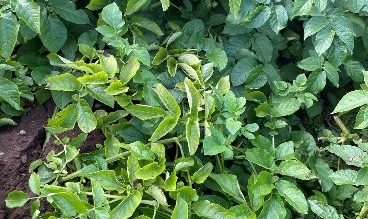Researchers have revealed that a new variant of potato leafroll virus (PLRV) is rapidly replacing the historic strain that’s circulated in Scotland since 1989.
During the past five years, PLRV incidence has risen sharply in Scottish seed potatoes – since 2018, the number of seed potato fields reporting infection has increased nearly tenfold, reaching record levels in 2024.
This year alone, 17.5% of Scottish seed potato crops were downgraded or failed due to PLRV infection. With 78% of the UK’s potato crop originating from Scottish seed tubers, the spread of this virus poses a significant threat to production and supply chains.
New research
Collaborative work conducted by the James Hutton Institute and the Science and Advice for Scottish Agriculture (SASA) involved a large-scale genetic analysis of PLRV samples collected from across Scotland in 2023-2024, to determine whether this increase could be linked to the spread of a novel variant. It revealed an emerging PLRV variant had become prevalent.
JHI’s Dr Eugene Ryabov says results of the recent PLRV project suggest there should be regular monitoring of diversity and strain identity of viral pathogens. “Emerging virus variants would be more harmful and would require different control strategies to safeguard the UK’s potato industry.”
While the study, published in the journal Viruses, doesn’t prove the new variant is the primary cause of the increase in PLRV, the possibility makes it worth further investigations, he adds.
The study can be read here: https://www.mdpi.com/1999-4915/17/10/1294




